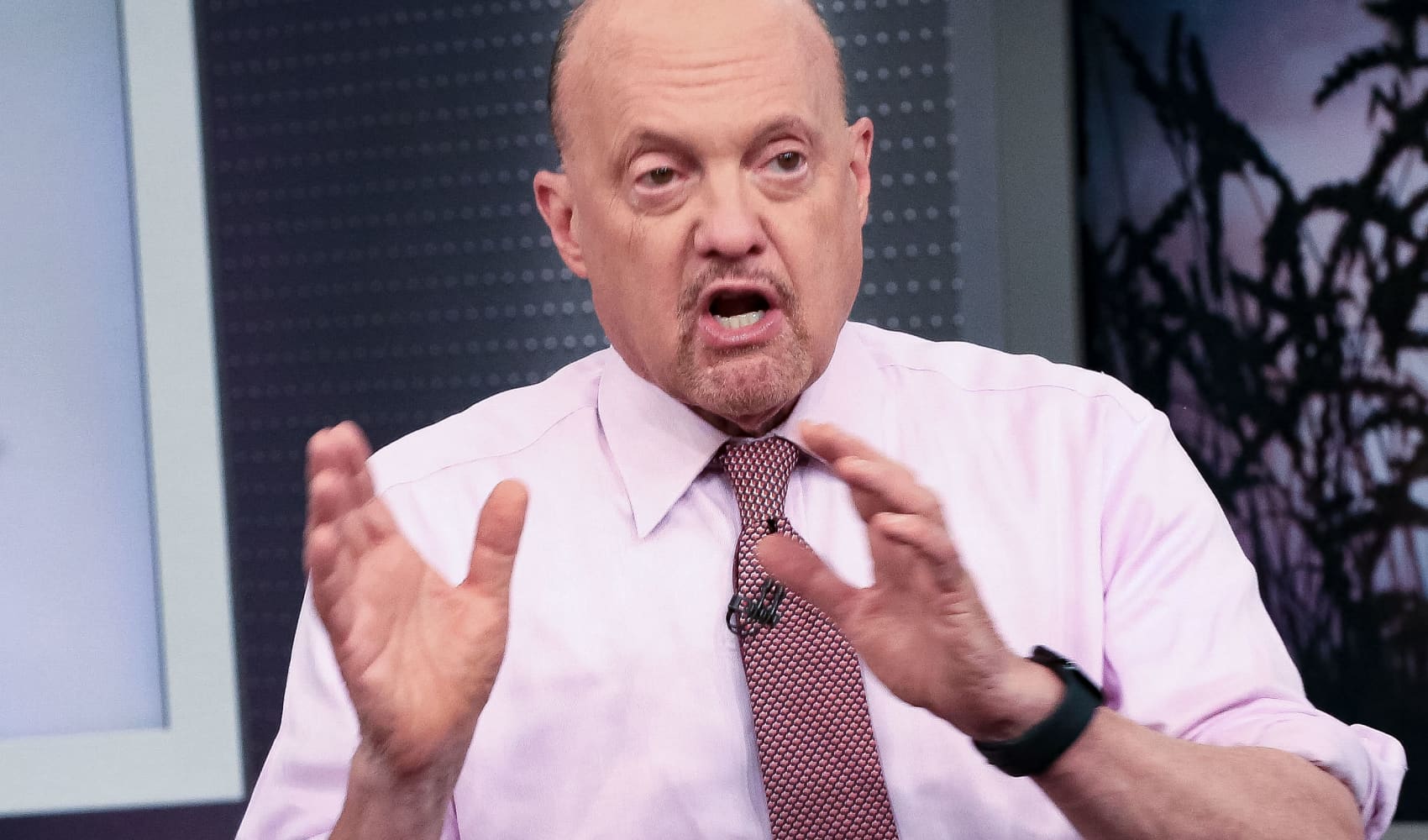
- The special counsel investigating President Joe Biden over his handling of classified documents released his final report.
- Biden "willfully retained and disclosed classified materials after his vice presidency," Department of Justice special counsel Robert Hur wrote.
- The report comes nearly 13 months after Attorney General Merrick Garland picked Robert Hur as special counsel to handle the probe.
- Former President Donald Trump is criminally charged with retaining classified documents after leaving the White House and concealing them from the government.
President Joe Biden "willfully retained and disclosed classified materials" kept in unsecured locations after his vice presidency, which presented "serious risks to national security," a Department of Justice special counsel said in a report released Thursday.
But the special counsel, Robert Hur, also said that he would not criminally prosecute Biden for his handling of that material.
Hur among other things cited the president's allegedly poor memory, which the special counsel said would make him sympathetic to a jury, in deciding not to prosecute him.
The FBI found classified documents, which by law should have been given back to the U.S. government when Biden ended his second term as vice president in January 2017, in the garage, office, and basement den of his Wilmington, Delaware, home, Hur's report said.
The documents included classified material about military and foreign policy in Afghanistan, and notebooks containing Biden's entries about national security.
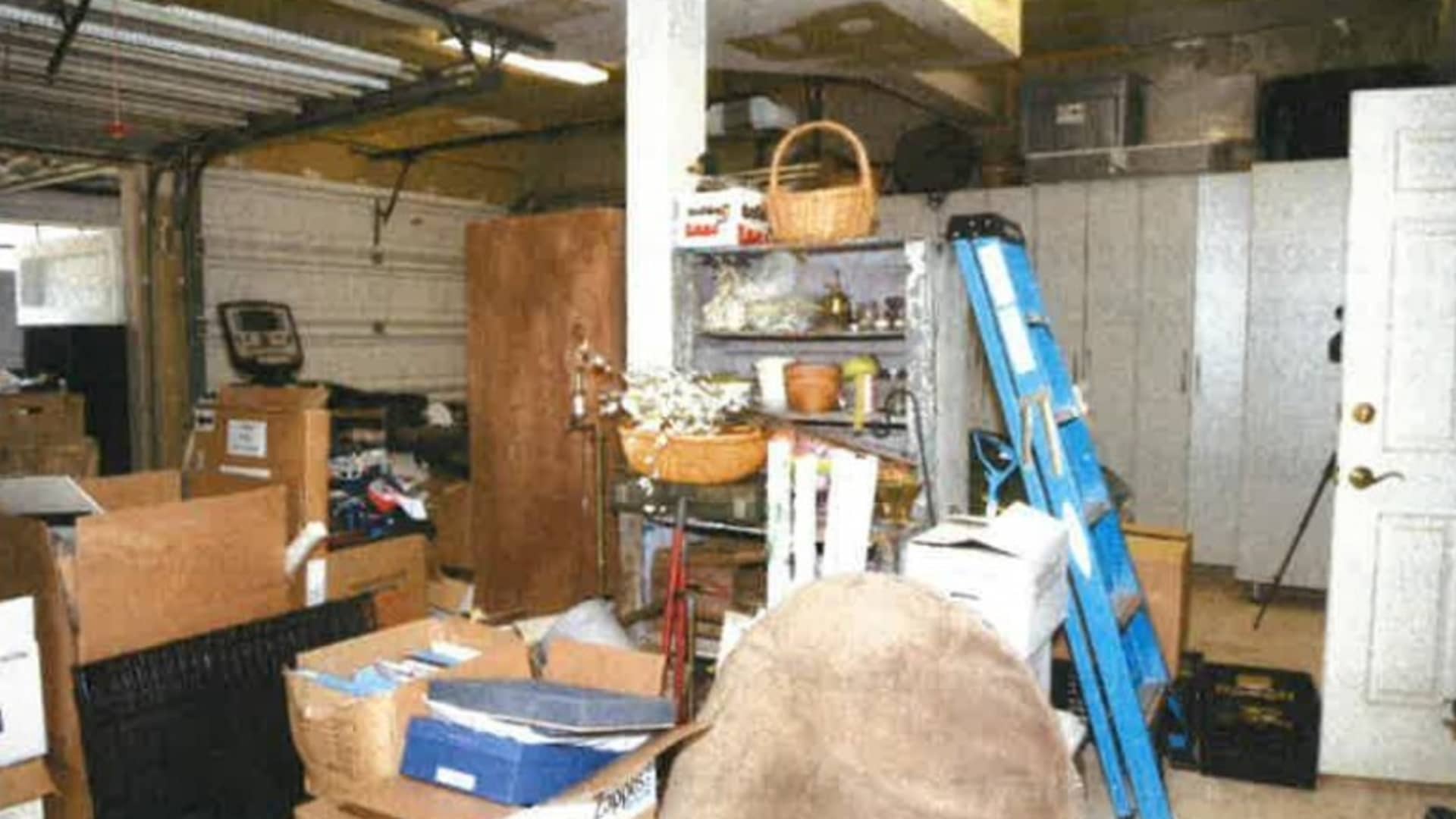
"Our investigation uncovered evidence that President Biden willfully retained and disclosed classified materials after his vice presidency when he was a private citizen," Hur wrote in his nearly 400-page report.
Money Report
"He knew he kept classified information in notebooks stored in his house and he knew he was not allowed to do so," the special counsel said.
Biden even shared some classified information with his ghostwriter for his second memoir, "Promise Me, Dad," published in 2017, which Hur said did not appear to contain any classified information.
"The practices of retaining classified material in unsecured locations and reading classified material to one's ghostwriter present serious risks to national security, given the vulnerability of extraordinarily sensitive information to loss or compromise to America's adversaries" Hur's report said.
The special counsel noted that the DOJ "routinely highlights such risks when pursuing classified mishandling prosecutions. But addressing those risks through criminal charges, the only means available to this office, is not the proper remedy here."
Hur said that the evidence "does not establish Mr. Biden's guilt beyond a reasonable doubt."
"We have also considered that, at trial, Mr. Biden would likely present himself to a jury, as he did during our interview of him, as a sympathetic, well-meaning, elderly man with a poor memory," the special counsel said.
"We conclude that no criminal charges are warranted in this matter," the report said. "We reach the same conclusion even if Department of Justice policy did not foreclose criminal charges against a sitting president."
Biden, in a statement on the report, said, "I was pleased to see they reached the conclusion I believed all along they would reach – that there would be no charges brought in this case and the matter is now closed."
"I cooperated completely, threw up no roadblocks, and sought no delays," the president said.
In a nationally televised address hours later, Biden blasted the special counsel for claiming his memory was poor.
Biden also pointed out several parts of Hur's report that contradicted the claim he "willfully" retained classified material, including one section about a subset of documents where "the evidence suggests that Mr. Biden did not willfully retain these documents and that they could plausibly have been brought to these locations by mistake."
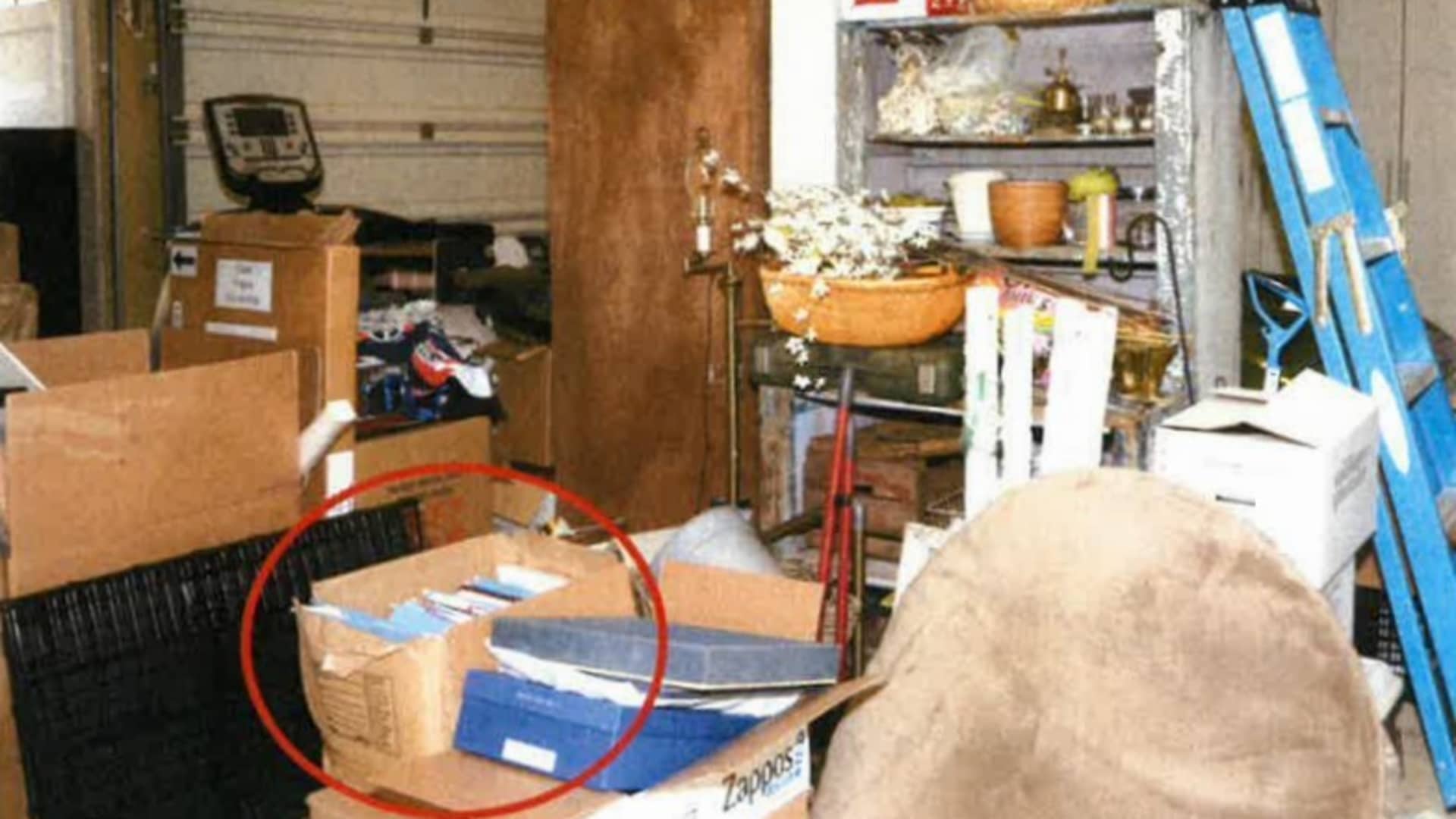
'Hazy' Memory
Hur's bluntly detailed lapses in Biden's memory when he was questioned for the probe.
"In his interview with our office, Mr. Biden's memory was worse," Hur wrote.
"He did not remember when he was vice president, forgetting on the first day of the interview when his term ended ('if it was 2013 - when did I stop being Vice President?'), and forgetting on the second day of the interview when his term began ('in 2009, am I still Vice President?')," the report said.
"He did not remember, even within several years, when his son Beau died," the special counsel said. "And his memory appeared hazy when describing the Afghanistan debate that was once so important to him."
"Among other things, he mistakenly said he "had a real difference" of opinion with General Karl Eikenberry, when, in fact, Eikenberry was an ally whom Mr. Biden cited approvingly in his Thanksgiving memo to President Obama."
Hur said that he expected that Biden's lawyers would use these memory gaps as a defense if he were prosecuted.
"In a case where the government must prove that Mr. Biden knew he had possession of the classified Afghanistan documents after the vice presidency and chose to keep those documents, knowing he was violating the law, we expect that at trial, his attorneys would emphasize these limitations in his recall," the special counsel wrote.
In a letter attached to the report, Biden's lawyers complained to Hur about what they called his "prejudicial and inflammatory" description of the president's "inability to recall dates or details of events that happened years ago." They that Biden's failure to remember certain information was to be expected given the passage of time.
The lawyers wrote that Hur had not used "denigrating" language to describe other witnesses' failure to recall years-old events.
Biden vs. Trump
The report comes nearly 13 months after Attorney General Merrick Garland named Hur special counsel to lead the probe into classified records that were found in late 2022 at the president's former private office in Washington and residence.
The report was released in the middle of a presidential race that was already laden with legal intrigue, and outrage.
Biden, a Democrat, faces a likely rematch this fall against former President Donald Trump, a Republican whom he defeated in the 2020 election.
Trump is being criminally prosecuted for retaining classified documents at his Florida home after he left the White House in January 2021. When officials noticed some of those documents were missing from the National Archives and asked Trump to return them, he refused, prosecutors have said.
Trump was charged last June with 37 felonies, including willful retention of national defense information, a violation of the Espionage Act. He has pleaded not guilty in the case, which is being prosecuted in federal court in south Florida.
Hur in his report Thursday drew a distinction between Biden's conduct and Trump's.
"With one exception, there is no record of the Department of Justice prosecuting a former president or vice president for mishandling classified documents from his own administration," wrote Hur.
"The exception is former President Trump. It is not our role to assess the criminal charges pending against Mr. Trump, but several material distinctions between Mr. Trump's case and Mr. Biden's are clear," wrote Hur, who as Trump's appointee served as U.S. attorney for Maryland from 2018 through 2021.
"Unlike the evidence involving Mr. Biden, the allegations set forth in the indictment of Mr. Trump, if proven, would clearly establish not only Mr. Trump's willfulness but also serious aggravating facts."
Trump had hundreds more classified documents in his possession than Biden did — more than 300 in total, including 102 that were seized during an FBI raid on Trump's Mar-a-Lago resort home in August 2022.
DOJ special counsel Jack Smith, who is prosecuting the former president, has alleged that Trump took steps with others to try to hide those documents from government officials who earlier searched the property.
But Trump in a statement Thursday seized on Hur's decision not to charge Biden as evidence of a "two-tiered system of justice," saying that he was the victim of "unconstitutional selective prosecution."
"The Biden Documents case is 100 times more different and more severe than mine," Trump said.
"I did nothing wrong and I cooperated far more."
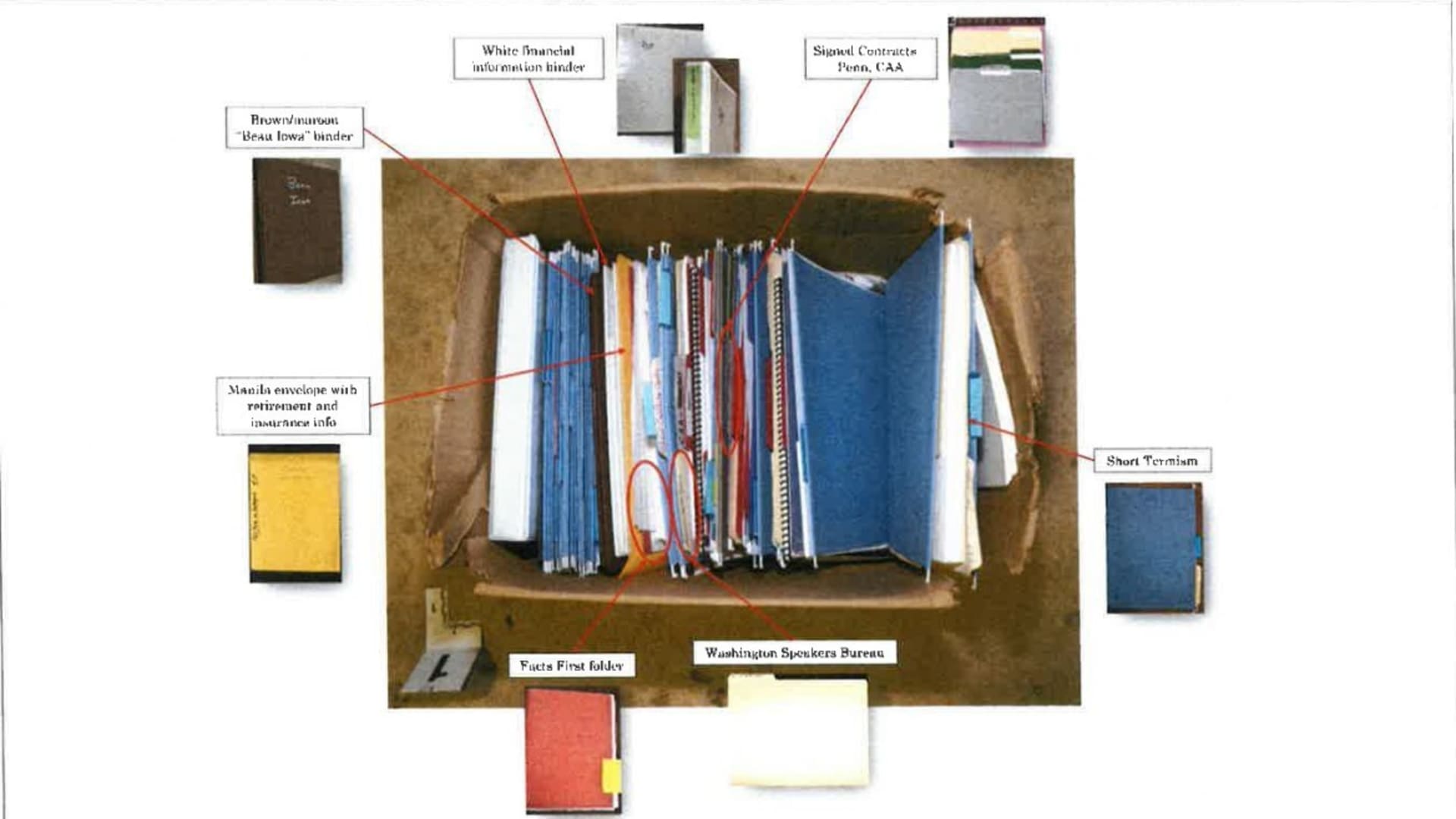
A 'historic figure'
Hur's report said that the materials recovered from Biden's home spanned his career in national office from 1973 when he became a U.S. senator from Delaware, and through his two terms as vice president under former President Barack Obama, from 2009 through early 2017.
Biden during his career "has long seen himself as a historic figure," and during that time collected papers and artifacts that were connected to "significant issues and events in his career," the report said.
"He used these materials to write memoirs published in 2007 and 2017, to document his legacy, and to cite as evidence that he was a man of presidential timber," Hur wrote.
"As vice president, Mr. Biden received and stored classified materials at the White House, his official residence at the Naval Observatory, his private home in Delaware, and — very briefly — his rental home in Virginia," the report said. "He relied on staff to help deliver, store, and retrieve these classified materials.
"Mr. Biden was known to remove and keep classified material from his briefing books for future use, and his staff struggled — and sometimes failed — to retrieve these materials," Hur wrote.
"These gaps in the tracking and retrieval of Mr. Biden's classified materials made it more difficult to determine when, how, and why many of the classified documents later found in Mr. Biden's home and think tank ended up where they did not belong."
The report contains photos of Biden's cluttered garage at his Wilmington home, where some of the classified material was found in cardboard boxes.
"The Afghanistan documents were ultimately found in Mr. Biden's Delaware home: in a badly damaged box in the garage, near a collapsed dog crate, a dog bed, a Zappos box, an empty bucket, a broken lamp wrapped with duct tape, potting soil, and synthetic firewood," the report said.
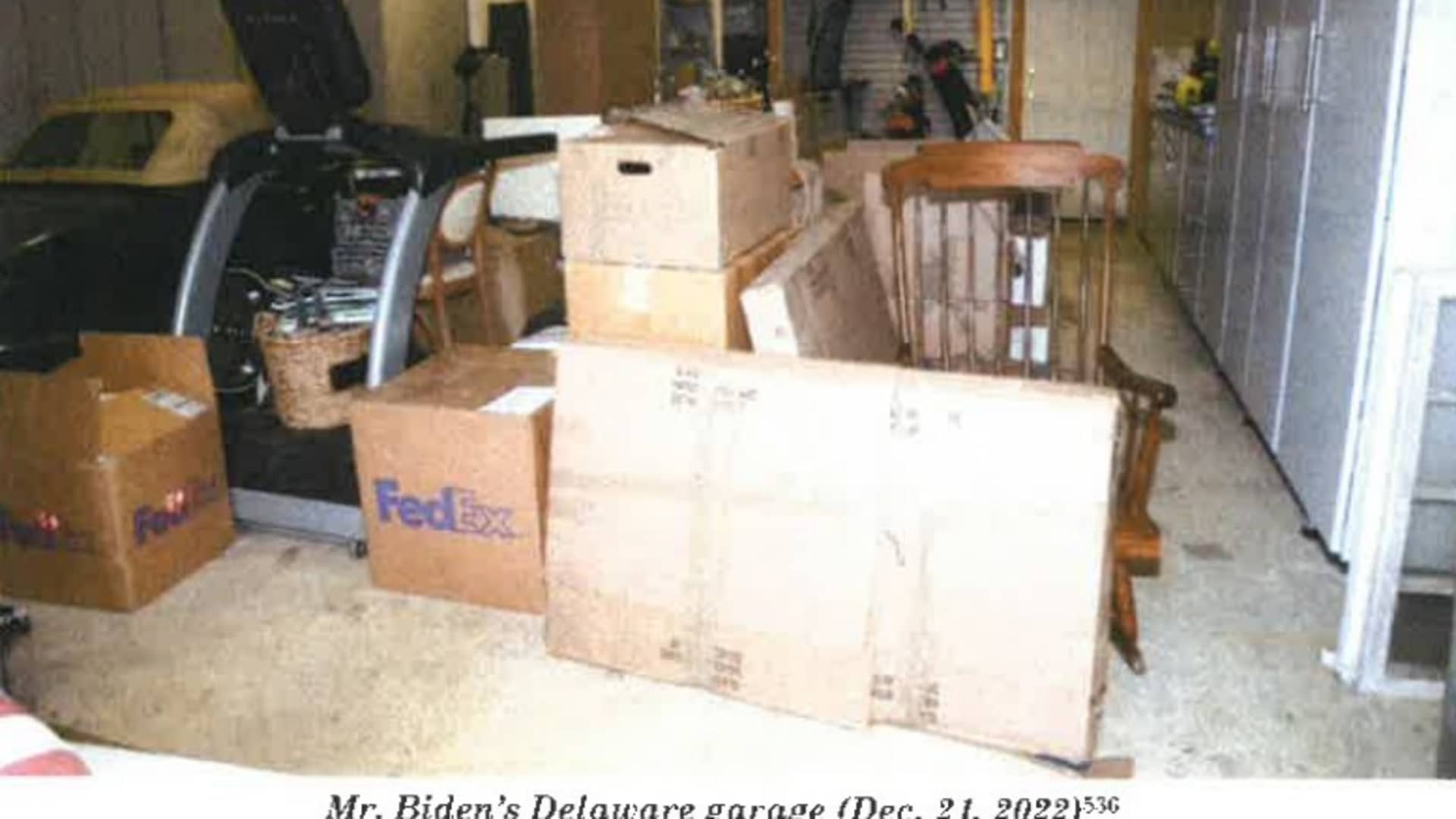
Biden's lawyer Richard Sauber, in a statement, said, "We are pleased that this investigation has concluded and that the Special Counsel [Hur] found 'no criminal charges are warranted in this matter,' even if the President were out of office and a private citizen."
Sauber said the report recognized that Biden "fully cooperated" from the outset of the probe, and his team "promptly self-reported that classified documents were found" and returned to the government.
"The simple truth is President Biden takes classified information seriously and strives to protect it," Sauber said. "He has spent decades at the highest levels of government defending and advancing America's national security and foreign policy interests and protecting her secrets."
Sauber said Biden disagreed with a "number of inaccurate and inappropriate comments" in the report.


